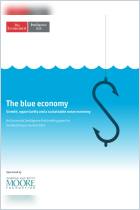Join getAbstract to access the summary!

Join getAbstract to access the summary!
Peter M. Haugan, Mari Elka Pangestu and Jane Lubchenco
Five Priorities for a Sustainable Ocean Economy
Unleash the ocean’s potential to boost economies sustainably while addressing climate change, food security and biodiversity.
Nature, 2020
What's inside?
Oceans are priceless, but sometimes people treat them as worthless instead.
Recommendation
Oceans cover most of Earth. They also offer trillions of dollars’ worth of benefits to humans, from protein-rich foods to carbon sequestration. Their ability to do so, however, is hampered by overfishing, habitat destruction and more. A coalition of 14 countries proposes to protect oceans while boosting their benefits with a five-point plan that includes advancing sustainable seafood, enhancing oceans’ ability to mitigate climate change and protecting biodiversity. They propose applying pandemic recovery funding to boosting oceans’ benefits, and coordinating activities for maximum impact.
Summary
About the Authors
Jane Lubchenco is distinguished university professor in the Department of Integrative Biology, Oregon State University. Peter Haugan is program director at the Institute of Marine Research, Bergen. Mari Elka Pangestu is managing director of Development Policy and Partnerships at the World Bank, Washington, DC. They are co-chairs of the expert group of scientists convened by the Ocean Panel.



















Comment on this summary